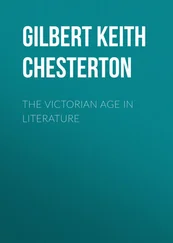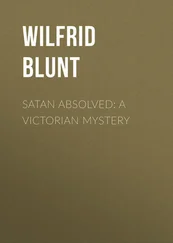Michael Kurland - Victorian Villainy
Здесь есть возможность читать онлайн «Michael Kurland - Victorian Villainy» весь текст электронной книги совершенно бесплатно (целиком полную версию без сокращений). В некоторых случаях можно слушать аудио, скачать через торрент в формате fb2 и присутствует краткое содержание. Жанр: Классический детектив, на английском языке. Описание произведения, (предисловие) а так же отзывы посетителей доступны на портале библиотеки ЛибКат.
- Название:Victorian Villainy
- Автор:
- Жанр:
- Год:неизвестен
- ISBN:нет данных
- Рейтинг книги:5 / 5. Голосов: 1
-
Избранное:Добавить в избранное
- Отзывы:
-
Ваша оценка:
- 100
- 1
- 2
- 3
- 4
- 5
Victorian Villainy: краткое содержание, описание и аннотация
Предлагаем к чтению аннотацию, описание, краткое содержание или предисловие (зависит от того, что написал сам автор книги «Victorian Villainy»). Если вы не нашли необходимую информацию о книге — напишите в комментариях, мы постараемся отыскать её.
Victorian Villainy — читать онлайн бесплатно полную книгу (весь текст) целиком
Ниже представлен текст книги, разбитый по страницам. Система сохранения места последней прочитанной страницы, позволяет с удобством читать онлайн бесплатно книгу «Victorian Villainy», без необходимости каждый раз заново искать на чём Вы остановились. Поставьте закладку, и сможете в любой момент перейти на страницу, на которой закончили чтение.
Интервал:
Закладка:
Her sister, “Lucy” to all who knew her, was somewhat younger and more ethereal in nature. She was a slim, golden-haired, creature of mercurial moods: usually bright and confident and more than capable of handling anything the mean old world could throw at her, but on occasion dark and sullen and angry at the rest of the world for not measuring up to her standards. When one of her moods overtook her, she retired to her room and refused to see anyone until it passed, which for some reason the young men of the college found intensely romantic. She had an intent manner of gazing at you while you conversed, as though your words were the only things of importance in the world at that instant, and she felt privileged to be listening. This caused several of the underclassmen to fall instantly in love with her, as she was perhaps the first person, certainly the first woman aside from their mothers, who had ever paid serious attention to anything they said.
One of the underclassmen who was attracted by Miss Lucy’s obvious charms was Mr. Sherlock Holmes. She gazed at him wide-eyed while he spoke earnestly, as young men speak, of things that I’m sure must have interested her not in the least. Was it perhaps Holmes himself who interested the pert young lady? I certainly hoped so, for his sake. Holmes had no sisters, and a man who grows up without sisters has few defenses against those wiles, those innocent wiles of body, speech and motion, with which nature has provided young females in its blind desire to propagate the species.
I was not a close observer of the amorous affairs of Lucy Moys, but as far as I could see she treated all her suitors the same; neither encouraging them nor discouraging them, but enjoying their company and keeping them at a great enough distance, both physically and emotionally, to satisfy the most demanding duenna. She seemed to me to find all her young gentlemen vaguely amusing, regarding them with the sort of detachment one finds in the heroines of Oscar Wilde’s plays, to use a modern simile.
Professor Maples took the in loco parentis role of the teacher a bit further than most of the faculty, and certainly further than I would have cared to, befriending his students, and for that matter any students who desired to be befriended, earnestly, sincerely and kindly. But then he seemed to truly care about the needs and welfare of the young men of Wexleigh. Personally I felt that attempting to educate most of them in class and at tutorials was quite enough. For the most part they cared for nothing but sports, except for those who cared for nothing but religion, and were content to allow the sciences and mathematics to remain dark mysteries.
Maples and his wife had “at home” afternoon teas twice a month, the second and fourth Tuesdays, and quite soon these events became very popular with the students. His sister-in-law, who was invariably present, was certainly part of the reason, as was the supply of tea-cakes, scones, fruit tarts, and other assorted edibles. I attended several of these, and was soon struck by an indefinable feeling that something was not what it seemed. I say “indefinable” because I could not put my finger on just what it was that puzzled me about the events. I did not attach too much importance to it at the time. It was only later that it seemed significant. I will try to give you a word picture of the last of these events that I attended; the last one, as it happens, before the tragedy.
It was Holmes who suggested that we attend Professor Maples’s tea that day. I had been trying to impress upon him a rudimentary understanding of the calculus, and he had demanded of me an example of some situation in which such knowledge might be of use. I outlined three problems, one from astronomy, involving the search for the planet Vulcan, said to lie inside the orbit of Mercury; one from physics, relating to determining magnetic lines of force when an electric current is applied; and one based on some thoughts of my own regarding Professor Malthus’s notions on population control.
Holmes waved them all aside. “Yes, I am sure they are very interesting in their own way,” he said, “but, frankly, they do not concern me. It does not matter to me whether the Earth goes around the Sun or the Sun goes around the Earth, as long as whichever does whatever keeps on doing it reliably.”
“You have no intellectual curiosity regarding the world around you?” I asked in some surprise.
“On the contrary,” Holmes averred. “I have an immense curiosity, but I have no more interest in the Binomial Theorem than it has in me. I feel that I must confine my curiosity to those subjects that will be of some use to me in the future. There is so much to learn on the path I have chosen that I fear that I dare not venture very far along side roads.”
“Ah!” I said. “I was not aware that you have started down your chosen road, or indeed that you have chosen a road down which to trod.”
Holmes and I were sitting in an otherwise unoccupied lecture hall, and at my words he rose and began pacing restlessly about the front of the room. “I wouldn’t say that I have chosen the road, exactly,” he said, “to continue with this, I suppose, inescapable metaphor. But I have an idea of the direction in which I wish to travel-” He made a point of his right forefinger and thrust it forcefully in front of him. “-and I feel I must carefully limit my steps to paths that go in that direction.”
“Is it that pile of erasers or the wastebasket at the end of the room at which you hope to arrive?” I asked, and then quickly raised a conciliatory hand. “No, no, I take it back. I’m glad you have formulated a goal in life, even if it doesn’t include the calculus. What is the direction of this city on a hill toward which you strive?”
Holmes glowered at me for a moment and then looked thoughtful. “It’s still slightly vague,” he told me. “I can see it in outline only. A man-” He gathered his ideas. “A man should strive to do something larger than himself. To cure disease, or eradicate hunger or poverty or crime.”
“Ah!” I said. “Noble thoughts.” I fancied that I could hear the lovely voice of Miss Lucy earnestly saying that, or something similar, to Holmes within the week. When a man is suddenly struck by noble ambitions it is usually a woman who does the striking. But I thought it would be wiser not to mention this deduction, which, at any rate, was rather tentative and not based on any hard evidence.
“It’s Professor Maples’ afternoon tea day today,” Holmes commented. “And I had thought of going.”
“Why so it is,” I said. “And so we should. And, in one last effort to interest you in the sort of detail for which you find no immediate utility, I call to your attention the shape of Lucinda Moys’ ear. Considered properly, it presents an interesting question. You should have an opportunity to observe it, perhaps even fairly closely, this afternoon.”
“Which ear?”
“Either will do.”
“What’s the matter with Miss Lucy’s ear?” Holmes demanded.
“Why, nothing. It’s a delightful ear. Well formed. Flat, rather oblate lobes. I’ve never seen another quite like it. Very attractive, if it comes to that.”
“All right, then,” Holmes said.
I closed the few books I had been using and put them in my book sack. “I hereby renounce any future attempt to teach you higher mathematics,” I told him. “I propose we adjourn and head toward the professor’s house and his tea-cakes.”
And so we did.
The Maples’ event was from three in the afternoon until six in the evening, although some arrived a bit earlier, and some I believe stayed quite a bit later. The weather was surprisingly mild for mid October, and Holmes and I arrived around half past three that day to find the professor and his household and their dozen or so guests scattered about the lawn behind the house in predictable clumps. The vice-chancellor of the university was present, relaxing in a lawn chair with a cup of tea and a plate of scones. Classical Greece was represented by Dean Herbert McCuthers, an elderly man of intense sobriety and respectability, who was at that moment rolling up his trouser legs preparatory to wading in the small artificial pond with Andrea Maples, who had removed her shoes and hoisted her skirts in a delicate balance between wet clothing and propriety.
Читать дальшеИнтервал:
Закладка:
Похожие книги на «Victorian Villainy»
Представляем Вашему вниманию похожие книги на «Victorian Villainy» списком для выбора. Мы отобрали схожую по названию и смыслу литературу в надежде предоставить читателям больше вариантов отыскать новые, интересные, ещё непрочитанные произведения.
Обсуждение, отзывы о книге «Victorian Villainy» и просто собственные мнения читателей. Оставьте ваши комментарии, напишите, что Вы думаете о произведении, его смысле или главных героях. Укажите что конкретно понравилось, а что нет, и почему Вы так считаете.
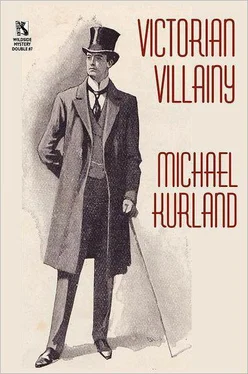
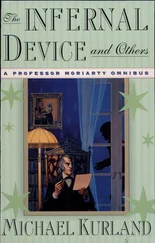

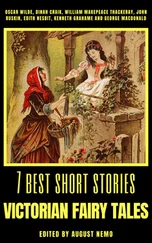




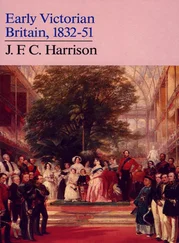
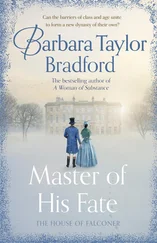
![Brian Thompson - A Monkey Among Crocodiles - The Life, Loves and Lawsuits of Mrs Georgina Weldon – a disastrous Victorian [Text only]](/books/704922/brian-thompson-a-monkey-among-crocodiles-the-life-thumb.webp)
